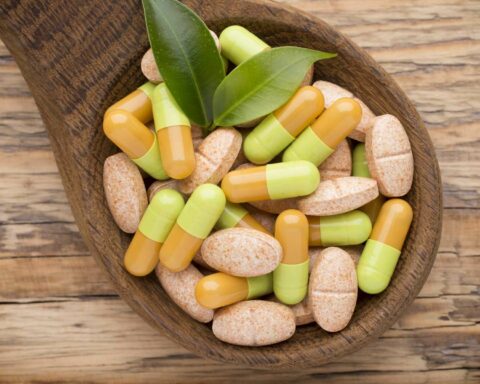Probiotics refer to living microorganisms that offer health advantages when taken in an adequate amount. They are health-benefiting microbes, sometimes called good bacteria. The most common probiotics include Bifidobacterium and Lactobacillus. There are approximately 39-300 trillion bacteria in the human body. Some artificial sources of probiotics include supplements, yogurt, tempeh, kefir, and kimchi.
Probiotics are active microorganisms ingested to distort the gastrointestinal flora for health aids. By doing so, they help create a balance for a healthy digestive system. Different probiotics address distinct health conditions, and ingesting the right type is essential. Some broad-spectrum probiotic supplements combine different species in the same product. Either way, their health benefits include improving digestion, weight loss, enhancing the immune system, and reducing the risk of certain diseases. This blog will outline a beginner’s guide to probiotics, including their health benefits.
Combating COVID-19
In the wake of the pandemic, some researchers have suggested that boosting the gut microbiome using probiotic supplementation may help combat infection with the novel coronavirus SARS-CoV-2. COVID-19 is known to destroy the body’s immune defense via a “cytokine storm” of excessive inflammatory cytokines. And if left untreated, it can cause death.
Intestinal flora strengthens the immune system and combats inflammation. Researchers propose that probiotic supplements may speed up recovery from coronavirus by preventing the formation of “cytokine storm.” Also, individuals with COVID-19 have reported gastrointestinal symptoms such as vomiting, diarrhea, abdominal pain, nausea, and loss of appetite.
Research also indicates they can help prevent coronavirus by clogging the angiotensin-converting enzyme (ACE) receptor. It does this by allowing the SARS-CoV-2 pathogen to invade gastrointestinal cells. Another study revealed that probiotic supplementation might generally enhance antiviral activity, hence improving immunity that may help destroy SARS-CoV-2 infection.
Aids in Weight Loss
Studies indicate that individuals with obesity have different gut bacteria than those who aren’t. Research reveals a link between gut microbes and obesity in both adults and infants. Scientists also believe that gut bacteria are essential in determining body weight. In a particular targeted research, 210 people with central obesity characterized by excess belly fat consume probiotic Lactobacillus gasseri daily. Over 12 weeks, the participants had lost an average weight of 8.5% of their belly fat. When they stopped eating probiotics, they gained the weight back within one month.
Boosts Digestive Health
Studies suggest that probiotic supplements can assist in diagnosing antibiotic-associated diarrhea. Excessive consumption of antibiotics may cause diarrhea, and antibiotics kill the natural bacteria in the gut, shifting the gut balance and allowing toxic bacteria to thrive. Probiotics help prevent common digestive order, irritable bowel syndrome (IBS), reducing gas, constipation, diarrhea, and bloating.
The research proposes that multi-strain probiotic supplements appear to improve IBS significantly, especially when consumed for two months. Studies also disclose that they help fight Helicobacter pylori infections which are the major triggers of ulcers and stomach cancer. Also, research shows their supplementation can fight against inflammatory bowel diseases such as ulcerative colitis and Crohn’s disease.
Promotes Vaginal Health
Probiotics are used in maintaining urogenital health. Like the intestinal tract, the vagina is a smoothly balanced ecosystem. The dominant Lactobacilli strains usually make it too acidic for dangerous microorganisms to survive. But the system can be imbalanced by including antibiotics, spermicides, and birth control pills. A probiotic diagnosis that restores microflora balance may be important for such common female urogenital problems as yeast and urinary tract infections. Vaginal administration of Lactobacilli may assist in the diagnosis of bacterial vaginosis.
Favors Gut Health
Probiotics are used to diagnose diarrhea. Studies indicate that Lactobacillus GG can delay the cause of infectious diarrhea in children but not adults. Research reveals that probiotics lower antibiotic-related diarrhea by 60% when compared with a placebo. Probiotics slow down “gut transit time” by 12.4 hours. Additionally, it increases the number of weekly bowel movements by 1.3 and helps to soften stools, making them easier to pass, thereby combating constipation.
Research also shows that probiotic therapy assists individuals with Crohn’s disease and irritable bowel syndrome. One study explained that probiotics aid in maintaining remission of ulcerative colitis and prevent relapse of Crohn’s disease and the recurrence of pouchitis (a complication of surgery to diagnose ulcerative colitis).
May Boost Mental Health
The gut is normally called the second brain due to the strong gut-brain connection. Interactions between the twoaffect multiple mental disorders caused by inflammation, such as obesity, mood disorders, and autism spectrum disorder. Researchers propose that changing the quality of bacteria can benefit both the digestive system and abnormal behaviors shown in the cases of autism.
And probiotic supplements might assist in relieving symptoms of anxiety by lowering inflammation in the gut-brain connection. Studies suggest that they may improve cognitive and brain development. Moreover, they boost brain function and connectivity.
Promotes Healthy Skin
Some research shows that probiotic supplements can help soothe pediatric atopic dermatitis and eczema in infants. The health of bacteria in the gut is also linked with the development of acne. The anti-inflammatory effect of probiotics is associated with the reduction of skin irritation. L. casei, a specific strain of bacteria, can lower inflammation and have advantages for healthy and diseased skin.
Lowers Blood Pressure
Probiotics reduce blood pressure by improving lipid profiles such as cholesterol and triglycerides. Also, it reduces insulin resistance and activates antioxidants. The positive impacts are the most obvious in individuals who already have high blood pressure. Additionally, it continues to lower blood pressure when the person takes a variety of probiotic strains for a minimum of two months.
Conclusion
Probiotics have contributed positively to human health. Maintaining a healthy gut is paramount to all people. Daily diets and exercise are essential to gut health. Probiotic supplements may provide a wide range of body health advantages with few side effects. Therefore, anyone can improve their gut health by considering probiotics. When starting probiotics, use a reputable product, begin slowly and seek advice from trusted healthcare. Before using them, talk to your doctor to ensure that you try the right strains in the recommended amounts and avoid negative side effects. Enjoy the benefits of probiotics by using the recommended amounts.









